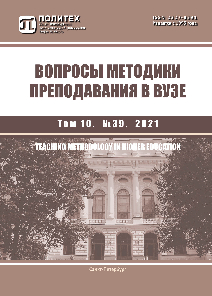Organizational and pedagogical conditions for motivation increase of students with disabilities in the context of inclusive education
The author presents the methodological aspects of inclusive education organization. For this purpose, the following regulatory documents have been analyzed: «Declaration on the Rights of Persons with Disabilities», «Universal Declaration of Human Rights», «Convention on the Rights of the Child», «The UNESCO Salamanca Statement», Federal Law «On Education in the Russian Federation» dated December 29, 2012 No. 273- FL and the State Program of the Russian Federation" Accessible Environment". The article considers effective strategies that make it possible to design the process of inclusion based on individual abilities, taking into account developmental deficits and characteristics of the disease: inclusion of students with disabilities in the educational system; increasing motivation to interact; monitoring and changing the level of support. The fundamental factors in the success of the inclusion process were determined using SWOT analysis as a method for assessing opportunities and threats. The special conditions provided in the educational process and technologies for increasing the motivation of students with disabilities are presented. It is noted that the ratio of internal and external factors provide future development strategies planning, including both professional and personal development. The analysis made it possible to determine the possibilities to predict threats in the conditions of inclusive education. The study provides the recommendations on regulating the issues of persons with disabilities education related to equal access for all students, taking into account the variety of special educational needs and individual opportunities, and, thus, to implement an adapted educational program for training persons with disabilities and ensure their social adaptation.



